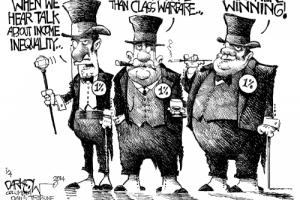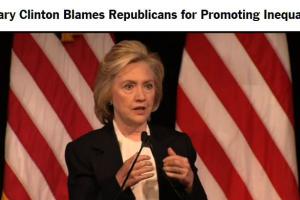America’s Suicide Epidemic: It’s Hitting Trump’s Base Hard
TomDispatch
 Using policy to shift economic power and make U.S. incomes grow fairer and faster. Boosting income growth for the bottom 90 percent requires a policy agenda that explicitly aims to halt or reverse the rise in inequality. Finding no relationship between rising inequality and faster growth means raising living standards for the bottom 90 percent can likely be better for overall growth.
Using policy to shift economic power and make U.S. incomes grow fairer and faster. Boosting income growth for the bottom 90 percent requires a policy agenda that explicitly aims to halt or reverse the rise in inequality. Finding no relationship between rising inequality and faster growth means raising living standards for the bottom 90 percent can likely be better for overall growth.
 Hillary Clinton's record in office suggests that she is more liberal than either her husband or Barack Obama, and in a Monday speech outlining her economic vision she set out to confirm that. However, still lacking is much policy detail as to how this difference might look in practice. A future Clinton administration might help change the norms of corporate governance to foster the kind of labor relations that everyday workers have not experienced in decades.
Hillary Clinton's record in office suggests that she is more liberal than either her husband or Barack Obama, and in a Monday speech outlining her economic vision she set out to confirm that. However, still lacking is much policy detail as to how this difference might look in practice. A future Clinton administration might help change the norms of corporate governance to foster the kind of labor relations that everyday workers have not experienced in decades.
Spread the word